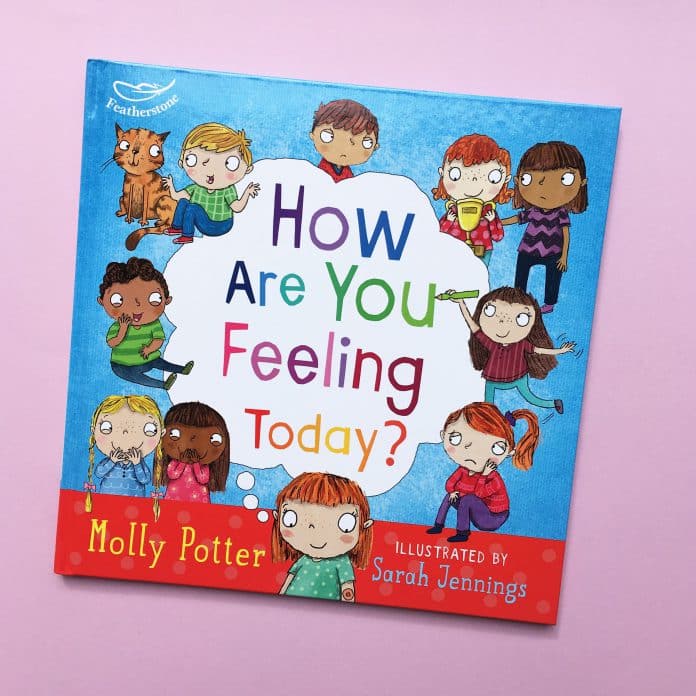Parents should know that when it comes to a child, or indeed adult, expressing what most people call a “negative” emotion – as a general rule – never ask why. In an age when people are more isolated than ever before, despite greater online ‘connectedness’, understanding this is important.

As a default: never ask why.
If a child is expressing anger or frustration, it actually does not matter, at that instant, why. What matters is understanding and communicating the language of feelings. If a child is upset or silent, at that moment it does not matter why they are upset or silent. What matters more, at that particular time, is for them to feel connected through empathy. Such empathy might sound something like this:
“You seem really upset. What’s on your mind?” This is vastly different to “Why are you angry?”
Alternatively, “You seem really quiet… something upsetting you or getting you down?” in contrast to, “Why are you so withdrawn?”
Empathic statements require an adult to be able to read and also articulate emotions without asking why.
In my opinion, the use of the word ‘why?’ can be emotionally dangerous for three reasons:
* It assumes that the upset person will be able to articulate exactly how they feel, using the language of emotions – when most people actually cannot do this easily. It is even more difficult at times of emotional stress.
* Asking why has the effect of making most people feel defensive. It can feed the premise that there has to be a rational basis for what they feel. As rational (or logical) thinking and feelings (or emotions) are often not linearly related, asking why can make the person feel both confused and misunderstood. This can also worsen the situation.
* Asking why can carry an overtone of judgement, particularly if the person asking why is not someone who is emotionally expressive. If a predominantly rational person asks a person who can clearly express emotion, why they are feeling upset, then the emotionally expressive person can feel judged and unworthy.
If children grow up having to answer ‘why’ they feel, as opposed to learning ‘how’ they feel, then their emotional education is one of distance from self-understanding.
In this way, asking why can often create a pattern of verbal rationalisation which does not make children any more capable of self-management or resilience. Indeed, it can make children grow up thinking it is normal to mask or hide emotions rather than embrace them.

Highly verbal children
For children who are highly verbal, having acquired language early, the temptation to have them vocalise and ‘own’ their feelings through adults asking why can be particularly fraught. This is because it can outsource parenting to a child through requiring the child to tell the parent what is happening. This reverse onus can be contrary to helping children feel safe. Asking a child why they feel particular feelings, at a time of heightened emotion, can have the effect of the child managing the parent. This can affect a child’s boundaries and understanding of emotional safety.
Articulating feelings and the language of emotions
In the parent-child relationship it is parents who should manage their children, including through articulating for the child the emotions the child feels. Articulation by parents, until such time as children can articulate (accurately identify and name) a wide range of emotions on their own, has three positive effects on children:
* It instantly lets the child learn the language of emotions because the emotions they are feeling are identified and labelled.
* It normalises the feelings because by naming feelings a parent is affirming it is okay and real to feel a range of emotions. This removes a sense of judgement.
* It provides an appropriate avenue for the management of feelings and the empowerment that management brings.
When parents are able to identify and name the feelings that their children feel then it can have a wide range of positive effects. This process does not detract from teaching children appropriate management through rational thinking. However, it does not over value rational thinking. Over-rationalisation can lead to suppression of emotions and children feeling isolated and misunderstood. This is evident when children say to their parents, “You don’t understand me” or “You never listen”.
A word of warning
The process of identifying and naming feelings is quite difficult, despite it sounding easy. In my experience most people find it hard at any point in time to articulate how they are feeling, using a full range of emotional identifiers. Rather they use what I call “banner” emotions.
Banner emotions
Banner emotions include such labels as “sad, angry, happy”. These banners belie a range of deeper emotions such as alone, isolated, powerless, frustrated, anxious, agitated, unsettled, torn, ambivalent, apprehensive and the like. Teaching children the difference between banner emotions and the richness of emotions under these banners is crucial to a deep understanding of self.
Time-poor parents, running between work, school and home can find the demands to identify feelings too much. This is understandable. Learning to avoid asking why is a wise first step.
Never ask your kids 'Why?'
Navigating through your child’s emotional education

Reading Time: 4 minutes




